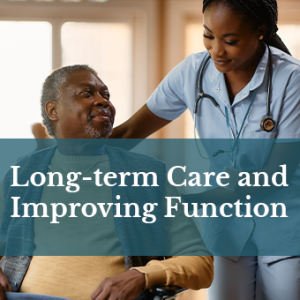Presenter(s):
Andi Pramono, University of Newcastle, Australia
Abstract
People are living longer, with a corresponding increase in the numbers of people with disability, as well as welfare social and long-term care needs.
In addition to care and support provided by families, long-term care activities, care and support can be provided by paid care professionals. The aim is to help people with loss of function and capacity to maintain their wellbeing. Long-term care can include services provided in the home setting, community centres, assisted living facilities, and residential aged care facilities.
This study aims to explore long-term care services available for older people in Greater Newcastle, Australia, and Depok Jaya Area in Indonesia from the perspective of various stakeholders. The goal is to describe the care available, and to find opportunities for improvements. The locations in two countries were chosen to include a country with an advanced long-term care system, and one with a rudimentary system.
Method and Analysis
The study is a qualitative study involving interviews with stakeholders.
Stakeholders were invited to participate in a single, face to face, telephone or Zoom interview for around 60 minutes. Stakeholders were asked to answer open ended questions in a semi structured process. A standard vignette was used to provide a set of needs typical of older persons needing various levels of care at different stages in later life and adapted to each country setting. Against the vignettes, stakeholders were asked to describe care using the “6A” framework for long-term care (Availability, Approachability, Adequacy, Acceptability, Affordability and Accountability) as developed by the International Longevity Centre Global Alliance.
Interview data were analysed using framework analysis, an approach that allows textual data to be analysed by the themes. This approach is suitable with the use of the 6A framework which consists of themes that guide the structured interview questions. NVivo was utilised to assist in data analysis.
Argument
Although Australia has a well-established and widely available subsidised long term care system for older people, there are potentially unmet needs for older people in terms of accessing care and the adequacy of that care. In Indonesia, long-term care arrangements are not well established. The comparisons against the 6A framework, for a standard set of needs, highlights gaps and opportunities in both settings.
Significance
The result of this study may provide valuable information for the health service providers and community regarding long-term care services in conducting improvement activities or re-designing long-term care in the areas of interest.
Bio(s):
Andi Pramono started his career as a dentist, practising for a decade in his native Indonesia. After finishing his Master of Quality Improvement in Healthcare at University of Newcastle Australia in 1999, Andi shifted his career to health management. Moving to Australia in 2004, he studied a Master of Health Service Management and Aged Care Management at University of Western Sydney. From 2011 Andi has been working for Community and Aged Care Services at Newcastle Australia, a public health organisation within the New South Wales Ministry of Health. Here he found his passion for aged care services. Andi is now a part-time Higher Degree Research student at the Faculty of Medicine and Public Health (University of Newcastle) conducting research into aspects of aged care.

